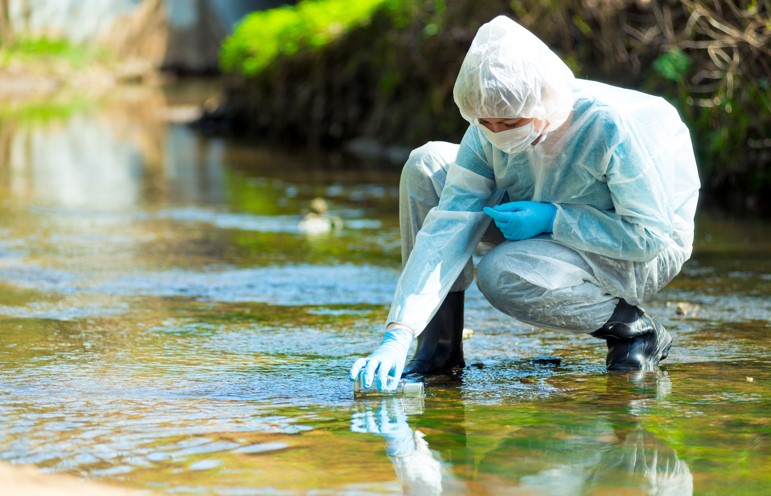Prior to just about every holiday each year, the state of North Carolina puts out various advisories related to that holiday. For instance, at Christmas they may remind you not to let your tree dry out and catch fire, and, on Memorial Day, they’ll remind you not to bring your charcoal grill into your living room and grill indoors.
This week, heading into the July 4th weekend, the state is reminding people that recreational waters can be dangerous for both people and pets. Some of the threats are very familiar – but others may not be. So, in hopes that this may save a life or two – or at least keep some pets from getting sick – here’s what state health officials want everyone to remember.
With the hot summer months here, North Carolinians love to head toward recreational waters, so the North Carolina Department of Health and Human Services is urging everyone to keep safety in mind when enjoying water activities – and, they stress, that means keeping your pet in mind too.
Dr. Susan Kansagra, Assistant Director for Public Health, said water quality is key.
“Understanding and monitoring water quality is vital for the safety of both residents and their pets during water recreation,” she noted in a prepared public statement released just before the July 4th Weekend. “By following these guidelines and being vigilant, we can minimize the risks associated with harmful algae and bacteria, ensuring a healthier experience for all.”
State health officials offer the following advice:
Recognize Harmful Algal Blooms. Algal blooms can produce toxins harmful to humans and pets. Here’s what to look for: “thick, green, blue-green or red scums on the water’s surface or along the shoreline.” If you see this, avoid contact with the water – and keep your pets away from these areas as well.
Avoid Suspicious Water Conditions. If the water appears discolored or has a strong odor or if contains visible debris, it can mean poor water quality and possible dangerous bacterial contamination. Choose a different location with safer looking water.
Follow Water Quality Advisory Updates. Keep yourself up to date about water quality and check for warnings about local waters. These advisories may include alerts about harmful algal blooms or bacteria contamination. Check the latest updates before heading out to enjoy summer water activities at this site with the easy to remember web address: https://www.deq.nc.gov/about/divisions/marine-fisheries/shellfish-sanitation-and-recreational-water-quality/recreational-water-quality?mc_cid=964bace465&mc_eid=01df2fc38a.
- Don’t Drink the Water. “As you enjoy swimming and boating this summer, avoid ingesting water and reduce your risk of illness by keeping your mouth closed and holding your nose shut or using a nose clip,” state health officials advise.
Also: “Discourage your pets from drinking or ingesting water while swimming to prevent water-borne illness. Carry fresh water for your pets to drink and keep them hydrated throughout your water activities.”
Rinse Off After Contact. After swimming, rinse yourself and your pets with clean fresh water to remove any potential bacteria, algae or toxins that may cling to skin or fur. This one easy act can prevent a lot of health issues associated with waterborne contaminants.
Look for Symptoms After Being in the Water. Be attentive to any symptoms in yourself – or your pets – after any water activities. Be on the lookout for things like skin irritations, gastrointestinal issues, respiratory problems or unusual behavior.
“If you or your pets exhibit any concerning symptoms, seek medical attention promptly,” the state advises.


Are we that stoopid? Do kids learn anything in grade school?